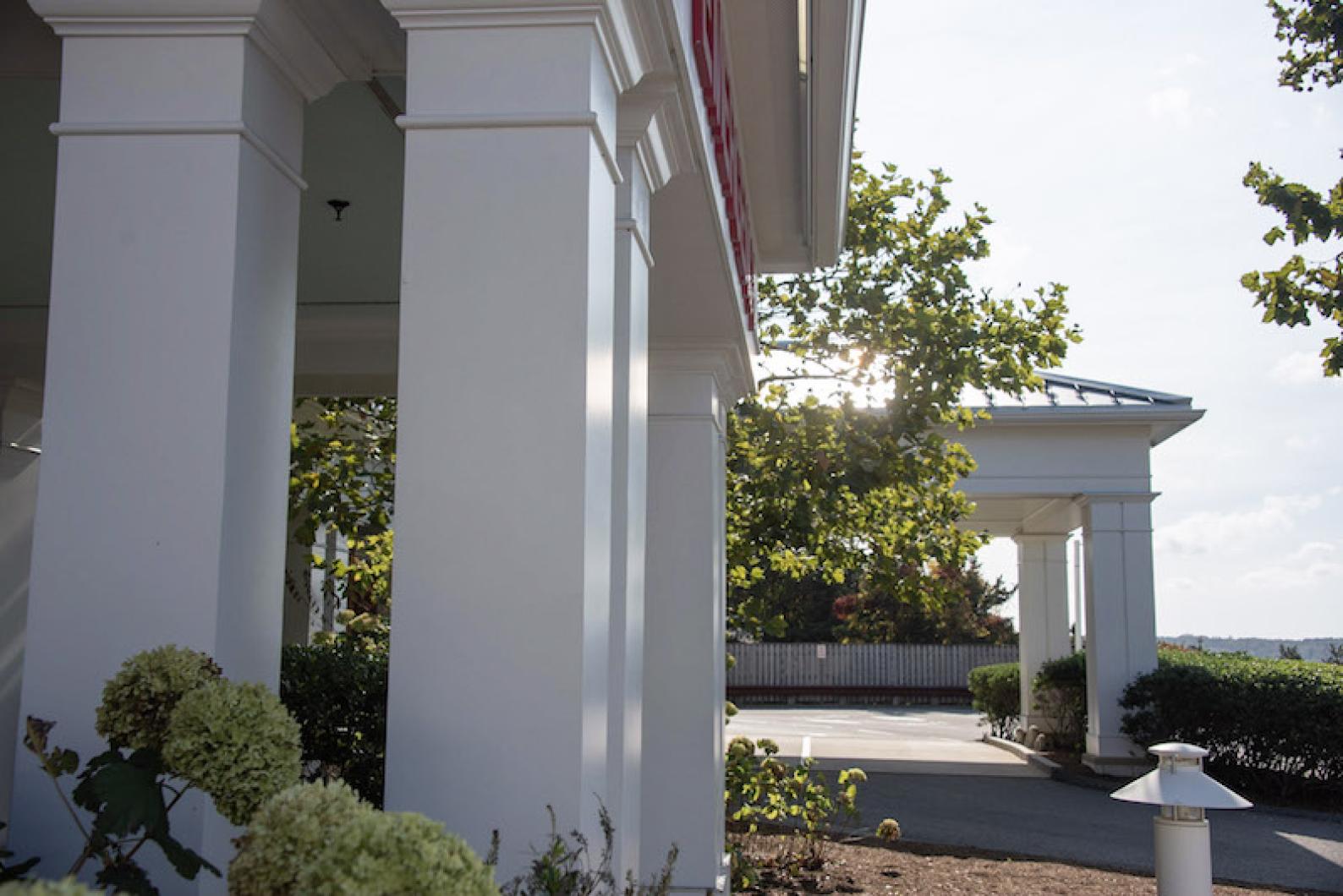To tackle the challenge of protecting homeless Islanders this winter, the Martha’s Vineyard Hospital has pledged $150,000 toward establishing and staffing temporary shelters, community advocates were told Thursday.
“We have been very fortunate in having a partnership with the hospital,” county administrator Martina Thornton said, disclosing the grant during a meeting of the Island’s food equity network.
The hospital formally announced the grant in a press release later Thursday. In the release, hospital officials noted that the $150,000 would go toward the operation of night shelters and warming centers from Nov. 1 through March 31, 2021.
“We’re really excited that the community is getting riled up about this and taking steps, because winter is right at our front door,” hospital president and CEO Denise Schepici told the Gazette Thursday.
The grant will fund both the establishment of winter shelter and warming centers and, for the first time in the five-year history of the Island’s all-volunteer shelter network, paid staff to manage them, Ms. Thornton said.
In the press release, the hospital added that the grant would help purchase necessary supplies and services including personal protective equipment.
Health restrictions and concerns about the risk of spreading Covid-19 have disrupted the system used in past years up by the Houses of Grace program in which several Island churches alternate serving as overnight and daytime shelters, using volunteers to supervise clients. The shelter program normally runs from Jan. 1 through March 31, but homelessness prevention advocates have long said a need exists further into the shoulder seasons.
Dukes County will act as a fiscal agent for the grant, according to the press release. Staff from Harbor Homes of Martha’s Vineyard will manage the operation with the support of House of Grace coordinators who have prior experience in running a night shelter. Both the night shelters and warming centers will be staffed by a pool of trained individuals, potentially supplemented by trained volunteers, the release states.
Ms. Thornton said representatives from the Harbor Homes housing nonprofit and Island churches that have hosted past winter shelters are seeking locations for both overnight and day use.
“Between Harbor Homes and Houses of Grace, there’s a really good team working on it now,” she said.
Karen Tewhey, a longtime homeless advocate who now works for Harbor Homes, said in an interview there are 15 people who regularly rely on the shelters. She said advocates are hoping to identify three smaller sites that could house up to five people a night.
Along with the homeless individuals who have sought shelter through the Houses of Grace network in recent winters, an increasing number of Island families is inadequately housed, according to members of the food equity network who took part in Thursday’s meeting.
And housing insecurity affects food insecurity, said Marjorie Peirce, who coordinates community meals for the First Congregational Church of West Tisbury.
“People are renting places where they are unable to cook — sometimes even unable to warm things up,” Ms. Peirce said. “It crosses all ages, including families with children.”
Sharon Brown of the Martha’s Vineyard Vegan Society, which delivers fresh produce to more than 40 Island households, said her group is also hearing from more clients whose inadequate housing limits their access to healthy meals.
“People who can’t cook or only have a microwave we couldn’t give them cabbage . . . because they had nowhere to prepare it,” said Ms. Brown, adding that she expects to see more homelessness this winter.
“Homeless can be people living in their cars [or] people renting rooms that are just the room and taking showers outside,” Ms. Brown said. “That population is probably going to be doubled this year.”
Ms. Schepici said that even though the grant would include money for hotel rooms for non-critically homeless families and elderly community members, the money was focused on helping those without any other option than the winter shelter program.
“The group that we’re most concerned about are those that pitch tents in the woods or live in their cars and have mental health issues," Ms. Schepici said. "We have to wrap some services around them, but our goal is for them to have a safe place to sleep at night and not be out in the woods.”
Ms. Schepici said she also hopes the grant will generate interest in developing a longer term plan to combat homelessness on the Vineyard, comparing the issues to the Island-wide effort that has been necessary to combat the pandemic.
“This is a complex problem," Ms. Schepici said. "Like with Covid, as a community we have to work together. I’ve seen what we can do when we galvanize this community. We can get things done."







Comments
Comment policy »